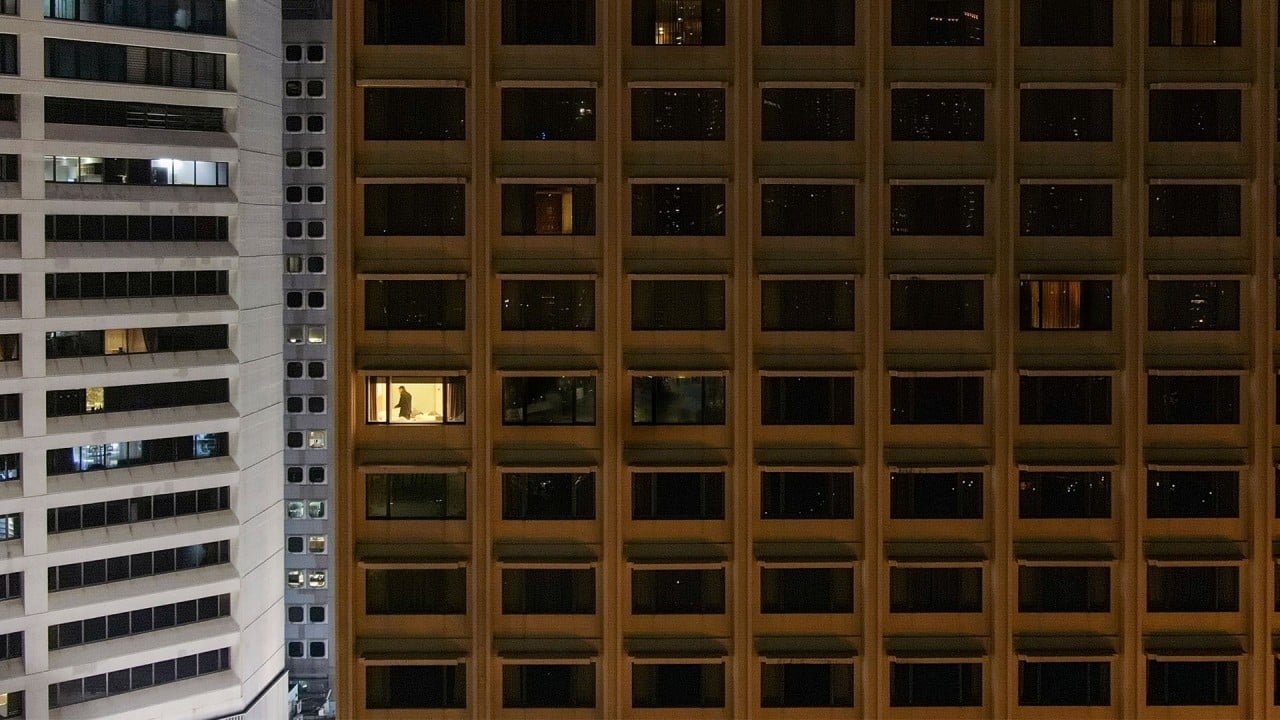
Hong Kong’s dark world of illegal bar hostesses comes under scrutiny after coronavirus cluster at pub
- The outbreak at China Secret bar is suspected to involve a woman working illegally
- At venues where men pay big money for companionship, undocumented workers prefer to remain out of the gaze of authorities
Concerns grew on Wednesday when the number of infections relating to the cluster at China Secret bar on Hart Avenue grew to nine, including another Thai woman who had visited the pub.
Four other Thai women who stay in her residential building have also tested positive, and another 29-year-old customer has also tested preliminary positive.
Health experts fear that if the hostessing involves illegal workers, contact tracing could be more difficult, as the women might not provide accurate information.

Hong Kong has an estimated 100 drinking establishments offering hostess service, with some operating without a licence. The women – whose work is mostly arranged by agents – could be local residents with a Hong Kong identity card or on tourist visas, according to one veteran bar operator, who wished to remain anonymous.
While the women came from different countries, the operator said businesses with Thai hostesses were mostly found in Kowloon City, while some were located in Tsim Sha Tsui. Each customer spent on average HK$1,000 (US$130) to HK$2,000 per visit.
“When you have these special services, then the income will be better than in ordinary bars. I guess that with girls sitting with customers, the receipt for one table could be 50 per cent more [than at a table at a normal bar],” the person said.
Tougher measures proposed for overstayers and employers of illegal workers
Women at high-class establishments could earn several thousand dollars a night. If customers booked a room with friends and had eight to 10 girls accompany them, the bill could exceed HK$10,000, although the earnings were split with the agent, and sometimes the bars as well, the insider said.
“Customers at bars with Thai girls pay in a different way. My friends told me that customers would exchange a HK$1,000 banknote for HK$20 banknotes and they put them into their bras as tips.”
The city’s more than 1,200 bars and pubs came under greater scrutiny after more than 100 cases were tied to several popular spots in multiple districts in March and April.
Authorities suspect a 26-year-old Thai woman who went to China Secret bar on September 23 and tested positive on October 1 was among a group of 10 women from the country who were working illegally as hostesses, sources earlier told the Post. A 22-year-old local student also visited the premises the same day and tested positive.
The women are said to have entered Hong Kong on tourist visas earlier this year and were organised by an agent. One law enforcement source said initial investigations showed clients paid to drink with them.
The Thai woman told police she did not work as a bar girl and only went to China Secret for fun.
Mainland Chinese sex workers among 12 women arrested in Hong Kong police sting
It was understood she arrived in the city in March before the government banned foreigners, and her visa was renewed when Thailand stopped all international flights into the country from April 3 until June 30.
A police source said there were more than 10 entertainment venues known as upstairs pubs or private clubs in the Yau Tsim Mong district, where women from mainland China, Thailand, Taiwan and South Korea worked illegally as hostesses. Similar premises operated in other districts such as Central and Wan Chai.
The women served clients who can afford to spend a lot of money, such as bankers.
“The ladies were paid to play drinking games with their customers, and some also provided sexual services after the drinking party,” he said. “They were arranged to work as hostesses through agents. Their middlemen have groups of male customers who need such women as their companions.”
But it was difficult to collect evidence and arrest the women during raids, as they would simply claim they were customers.
Police had to carry out undercover operations in which officers posed as customers and gave the women marked money, in order to catch them breaching their conditions of stay.
Fears mount over Hong Kong bar cluster, 11 new Covid-19 cases recorded
But such businesses have been hard hit by the coronavirus pandemic, as no women were able to come to the city due to quarantine and travel restrictions, the police source said.
Barrister Albert Luk Wai-hung said anyone claiming to be in Hong Kong for sightseeing could not take up any kind of employment, even it was receiving money from customers, as that would violate their visas.

05:13
Covid-19 pandemic forces Hong Kong hotels to rethink hospitality business models
The Immigration Department conducted 7,331 operations targeting illegal workers between February and August, up 4 per cent year on year. Some 548 suspects were arrested, down sharply from the 3,805 caught during the same period last year.
The department said it routinely assessed every visa application in accordance with prevailing policies and established procedures to ensure the applicant was eligible.
It had continued to monitor the problem of illegal workers and took tough action against unlawful employment, it added.
Two arrested in connection with fatal triad brawl at Hong Kong bar
The Post has asked police for the number of people arrested for illegal work during the same period.
The issue of people working under the table has been a source of concern during the pandemic as tracing their contacts could be difficult if they hide facts from health authorities.
But Cat Hou Chui-shan, chairwoman of the Bartenders and Mixologists Union of Hong Kong, said a reluctance to be forthcoming with authorities was not just limited to the bar industry.


